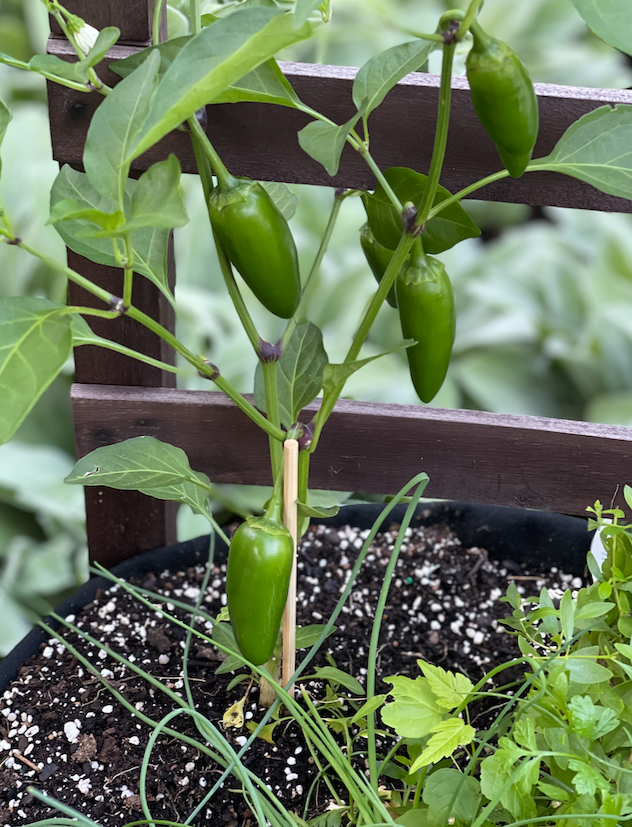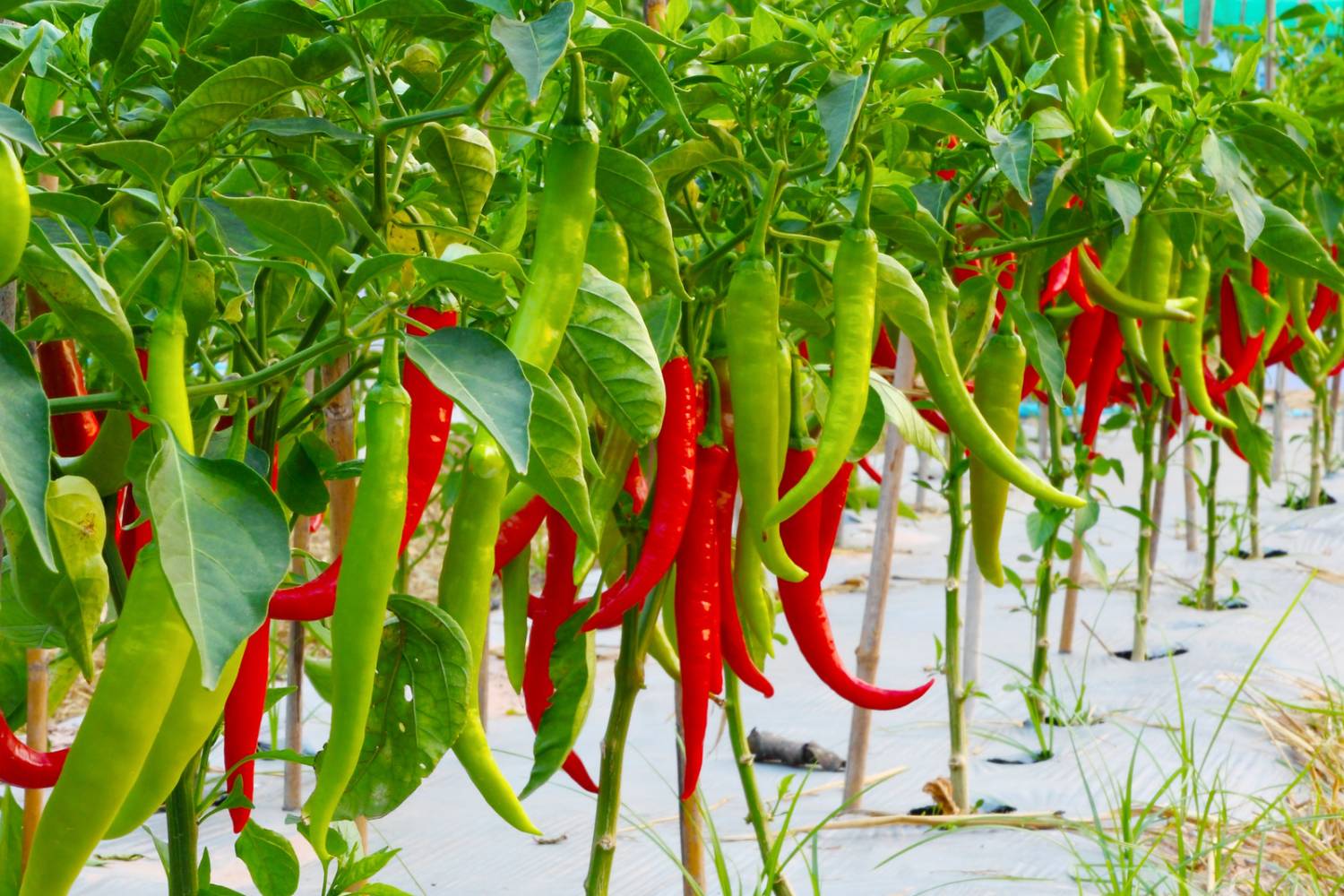Best Fertilizers for Peppers: Boost Development and Flavor with Our Leading Picks
Best Fertilizers for Peppers: Boost Development and Flavor with Our Leading Picks
Blog Article
Exactly How Plant Foods Play a Crucial Duty in Growing Abundant and healthy Pepper Crops
Fertilizers function as the backbone of successful pepper cultivation, providing a strategic strategy to nurturing the dirt and promoting optimum plant growth. The intricate dancing in between crucial nutrients and the pepper plants' physical procedures underscores the essential function that fertilizers play in making certain an abundant harvest. From fueling durable root growth to bolstering condition resistance, the influence of plant foods is far-ranging in the farming of worthwhile and healthy and balanced pepper crops. Stay tuned to uncover the nuanced methods which fertilizers add to the growing of pepper plants and the sustainable practices that underpin their efficacy.
Relevance of Nutrient-Rich Fertilizers
The use of nutrient-rich plant foods plays a critical duty in boosting the productivity and quality of pepper plants in modern-day farming techniques. Nitrogen, phosphorus, and potassium are primary nutrients that are essential for the growth and advancement of pepper plants.
Inadequate levels of these nutrients can result in stunted growth, minimized returns, and susceptibility to diseases (best fertilizers for peppers). Nutrient-rich fertilizers offer a targeted solution to guarantee that pepper plants obtain the necessary elements for optimum development and efficiency. In addition, these plant foods help enhance dirt fertility gradually, developing a sustainable atmosphere for long-term pepper growing
Enhancing Plant Growth and Development
To optimize plant development and advancement in pepper crops, tactical application of nutrient-rich plant foods is important. Fertilizers play a crucial role in improving the general health and wellness and productivity of pepper plants by offering them with vital nutrients that might be doing not have in the soil. Phosphorus, potassium, and nitrogen are primary macronutrients needed in large amounts by peppers for robust development. Nitrogen aids in leafed eco-friendly development and overall plant vigor, phosphorus sustains root growth and flower development, while potassium adds to condition resistance and fruit top quality.
Iron, for circumstances, is necessary for chlorophyll manufacturing, which is important for photosynthesis and total plant growth. Zinc plays a vital function in enzyme activity and hormone synthesis, influencing plant development and advancement at a cellular level.

Boosting Illness Resistance With Fertilizers
By tactically incorporating targeted fertilizers, farmers can strengthen the illness resistance of pepper crops, ensuring optimal plant health and performance. Plant foods including essential nutrients like potassium, phosphorus, and nitrogen play an essential role in reinforcing pepper plants' immune systems, making them more durable to various diseases.

Making The Most Of Pepper Return Through Fertilization
Utilizing a balanced fertilization approach is vital to accomplishing optimum pepper yield and ensuring optimum plant productivity. By giving peppers with the right nutrients at the right time, farmers can considerably boost their return possibility. Phosphorus, nitrogen, and potassium are important aspects for pepper growth, with nitrogen helping in fallen leave and stem advancement, phosphorus sustaining root development and flower formation, and potassium advertising general plant health.
To make best use of pepper yield, it is vital to conduct soil examinations to identify existing nutrition levels and recognize any deficiencies that need to be addressed. Based on these results, farmers can create a customized fertilizing strategy that meets the details requirements of their pepper plants. Furthermore, correct fertilizing techniques such as split applications throughout the growing period can guarantee continual nutrient availability for the plants.

Sustainable Fertilizer Practices for Peppers
In thinking about lasting plant food practices for peppers, it is imperative to concentrate on lasting soil health and environmental stewardship in combination with making best read this use of plant efficiency. Sustainable plant food practices aim to improve or keep dirt fertility while minimizing adverse ecological impacts. One crucial strategy is using natural plant foods such as garden compost, manure, or cover crops, which not only provide important nutrients to the peppers yet additionally add to soil structure and microbial activity. These organic alternatives help develop organic issue in the soil, boosting its capability to preserve water and nutrients, thereby sustaining long-term crop health and wellness and strength.
Furthermore, accuracy farming techniques, such as soil screening and targeted nutrient applications, can help optimize fertilizer usage, ensuring that peppers obtain the nutrients they need without excess runoff right into waterways. This not only benefits the atmosphere by lowering air pollution however additionally saves costs for farmers by lessening waste. By embracing sustainable plant food practices, pepper cultivators can safeguard the health and wellness of their crops, dirt, and bordering ecological communities for future generations.
Verdict
Finally, fertilizers are essential for cultivating healthy and plentiful pepper plants. Home Page best fertilizers for peppers. They supply needed nutrients for plant growth and development, increase condition resistance, and make best use of return. By executing sustainable fertilizer practices, farmers can guarantee the long-lasting wellness of their pepper crops and contribute to a much more reliable and environmentally-friendly farming system
The detailed dance in between necessary nutrients and the pepper plants' physiological procedures highlights the pivotal duty that plant foods play in guaranteeing a bountiful harvest.To optimize plant development and development in pepper crops, tactical application of nutrient-rich plant foods is crucial. Fertilizers play an important duty in enhancing the total health and wellness and performance of pepper plants by supplying them with essential nutrients that might be doing not have in the soil.By strategically including targeted fertilizers, farmers can strengthen the disease resistance of pepper plants, guaranteeing ideal plant health and wellness and productivity. Plant foods having important nutrients like potassium, nitrogen, and phosphorus play an essential role in enhancing pepper plants' immune systems, making them more durable to numerous diseases.
Report this page